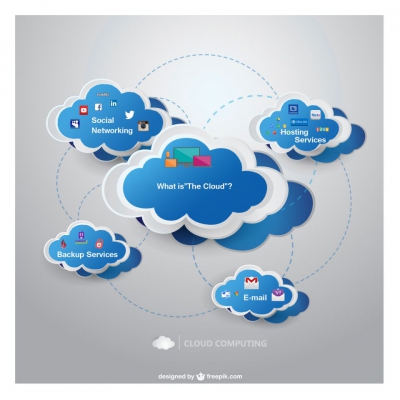We even have hardware that is specifically designed to use ‘the cloud’ - specifically the Samsung Chromebook. The Chromebook looks and acts like a computer, but rather than installing your programs on the device itself, you use a single program - a browser - to access everything you need online. Even storage is in not local, saving your data online … or in The Cloud.
Society’s increased presence and reliance on the internet, coupled with the constant need for more, cheaper, faster - both in the business world and in the consumer world - has lead to SaaS (Software as a Service). This is software that is ‘on-demand’ and does not have to be installed on the device you’re using it on. You access the software through something already installed on your device, usually a web browser. Just about anything you could possible want is likely available as SaaS, but the most common SaaS you've probably come across is Office 365. Rather than needing to install Microsoft’s Office Suite on your computer, it is not available as Office 365. These type of software services not only save space on your computer, but they also allow for faster, more efficient updates from the provider, as well as anywhere access to your files.
Of course, if you use the internet, you've likely come across controversy about personal information or data that is present ‘in the cloud’. The news is full of stories about Facebook private data that is not really private or celebrity pictures that were stored in ‘the cloud’ being leaked to the public. As soon as you put your data on someone else’s storage - even if that storage is supposed to be subject to strict privacy guidelines - you essentially give up control over that data. For most people, this is a fair trade off. We are offered some control - such as Facebook’s privacy settings - and we have the ability to pick and chose storage providers based on the privacy and security policies they implement.
In the end, anytime you have storage media accessible over network, you have a cloud. The internet is a very large - perhaps even unmeasurable - ‘public cloud.’ You can also create a ‘private cloud.’ In fact, you might already have one in your home. If you have two or more computers networked together (usually for internet access), you have a private cloud. For security and privacy minded consumers, the ability to store all their data locally is important. As consumers create more files they want saved, not to mention the amount of electronic data we purchase, bigger and better storage devices are coming onto the market, including standalone storage designed for consumer use. You can buy anywhere from 1-4 TB storage devices, designed to create a ‘personal cloud.’ Most of these devices can be designed to only allow local access, or to be accessible - with the right credentials, of course - via any internet connection.
“The Cloud” is not a big, mysterious, scary thing that only IT people understand. It is, simply put, the internet. Anything you save online, anything that is accessible online, anything that you can connect to with an internet connection, is in ‘the Cloud’.
graphic from Designed by Freepik



 We’ve all heard of it. In fact, we all use it, even if you don’t know you’re using it. The Cloud makes life easier. One of the problems with defining the cloud is that it is a new and growing idea. As new providers and new technologies emerge, the definition of the cloud computing changes.
We’ve all heard of it. In fact, we all use it, even if you don’t know you’re using it. The Cloud makes life easier. One of the problems with defining the cloud is that it is a new and growing idea. As new providers and new technologies emerge, the definition of the cloud computing changes. 
